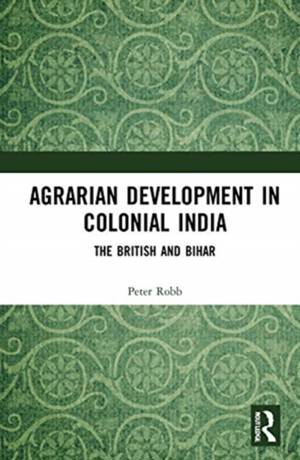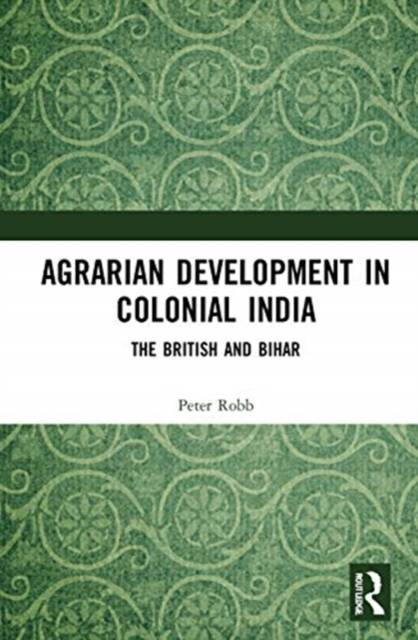
- Retrait gratuit dans votre magasin Club
- 7.000.000 titres dans notre catalogue
- Payer en toute sécurité
- Toujours un magasin près de chez vous
- Retrait gratuit dans votre magasin Club
- 7.000.000 titres dans notre catalogue
- Payer en toute sécurité
- Toujours un magasin près de chez vous
Description
This book looks at agriculture, development, poverty and British rule in India, especially in the Patna Division in Bihar between c.1870-1920. It traces the economic influence of British policies and maps the impact of legal, administrative and scientific interventions to rural conditions and norms in the state.
The book discusses British theories and policies of 'improvement', comparing them with Bihar's agricultural practice and socio-economic conditions to draw conclusions about rural impoverishment. Following on from his earlier book, Ancient Rights and Future Comfort on the Bengal Tenancy Act of 1885, the author also presents case studies on famines, debts, canal and village irrigation, flood-protection and the cultivation and production of indigo, opium and sugar. He analyses extensive archival material to reflect on property law, scientific interventions, cropping patterns, trade and intermediaries. He examines the economic role of governments, Eurocentric development theories and the complex impact of development policy on agriculture and society in Bihar.
The book will be of interest to academics and students of colonial history, modern Indian history, agrarian studies, economic history, sociology, and development studies. It will also be useful to development practitioners and researchers working on the history of agrarian conditions and public policy.
Spécifications
Parties prenantes
- Auteur(s) :
- Editeur:
Contenu
- Nombre de pages :
- 286
- Langue:
- Anglais
Caractéristiques
- EAN:
- 9780367771096
- Date de parution :
- 09-07-21
- Format:
- Livre relié
- Format numérique:
- Genaaid
- Dimensions :
- 156 mm x 234 mm
- Poids :
- 594 g







